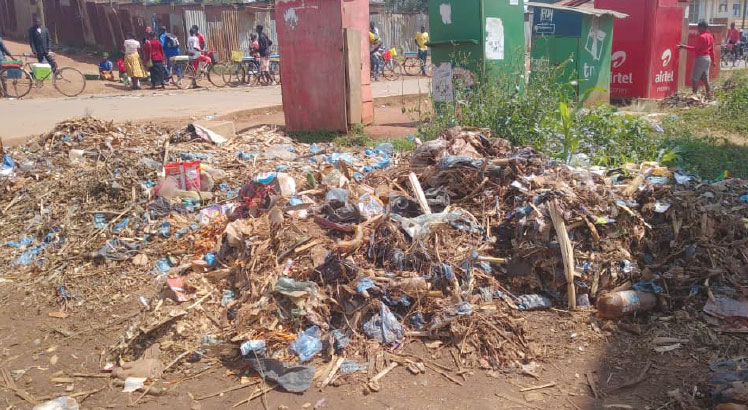Dirty cities fuel cholera as death toll hits 58
Malawi’s commercial capital Blantyre, once dubbed the cleanest city in Africa, is now the epicentre of cholera as a day barely passes without registering a case.
Since the outbreak in March this year, the commercial city has cumulatively registered 500 cases and 21 deaths. Nkhata Bay, which reported its first cases two weeks ago, has registered 349 cases with 11 deaths, according to Ministry of Health cholera outbreak report.
So far, the outbreak has spread to 12 districts, nine in the Southern Region, two in the Central Region and one in the Northern Region.
While Blantyre has 500 cases and Lilongwe has registered a case, Mzuzu and Zomba are yet to register any.
For the first time in six years, the country has registered 1 483 cumulative cholera cases and 58 deaths. The last time the country registered more, was in 2016 when there were 1 805 cholera cases and 48 deaths.

In an interview, Blantyre District Health Office spokesperson Chrissy Banda blamed the rise in cholera cases to “Some residents in the city prefer to use water from unsafe sources such as rivers and streams.”
She said her office recently conducted meetings to understand the cause and established that water taps in most kiosks run by Water Users Associations are dry.
“This is because the associations are not procuring water for the kiosks as residents prefer free water from nearby rivers and streams,” said Banda.
She said the office is conducting hygiene promotion activities and distributing chlorine in partnership with Médecins Sans Frontières to counter the problem.
Besides water problems, The Nation’s spot checks yesterday revealed that waste collection remains a challenge in public places in the city and some toilets in flea markets are not functional.
Vendors we spoke to said they have resorted to erecting make-shift toilets where traders and customers pay between K100 and K200 to relieve themselves.
Blantyre Market chairperson Black Binya said the toilets are substandard.
He said: “Blantyre main and flea markets have four pay public toilets each, besides the substandard toilets, vendors have constructed their own make-shift toilets outside the market. Hygiene practice is hugely lacking.”
In Limbe, market vendors’ adviser Timothy Matimati said they fear their temporary toilets could be part of the cholera problem.
“In almost all the temporary toilets, there is no much hygiene. This poses a threat and can contribute to the spread of waterborne diseases such as cholera,” he said.
Blantyre City Council director of health Emmanuel Kanjunjunju admitted yesterday that the council is facing a number of challenges to improve hygiene in the city.
However, he claimed that most markets have sufficient toilets, but people trading outside the markets resort to erecting their own toilets.
The unsanitary situation is the same in Zomba and Lilongwe cities although spot checks showed that waste management has improved in Zomba.
But in Mzuzu, sanitation challenges, especially collection of waste remains a problem.
Mzuzu City Council spokesperson McDonald Gondwe yesterday said the council is putting in place measures to prevent cholera in the city.
Mzuzu is about 35 kilometres from Nkhata Bay District, where 11 people have already died of cholera.
United Nations aid agencies yesterday said the nation’s efforts to contain the cholera outbreak is not enough and there is a significant need to address it.
The World Health Organisation and Unicef in a joint statement said there is urgent need for positive hygiene practices.
In the statement, Unicef Malawi country representative Rudolf Schwenk said the effects of the outbreak is likely to affect the health system in Malawi.
“The impact of the larger outbreak will overwhelm the already over-burdened public health services and healthcare delivery systems in the country. So, we must act now. The good news is that we know the solutions.”
The two agencies said there is need to provide critical supplies required to manage cholera cases and for water treatment, personal hygiene and water storage at household level.





